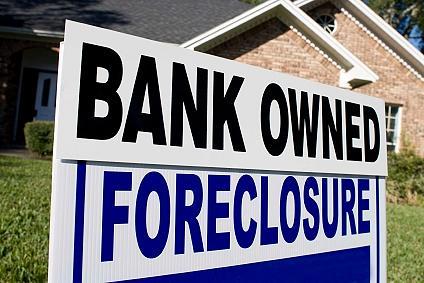Why REOs Aren’t Coming Back and Why Banks Will Do a Short Sale All Day Long in 2014 and 2015
10/02/2014 08:28 PM (CST)
 Even though common sense and numbers show that banks strongly prefer short sales to foreclosures, there are always those who argue otherwise. In addition, there are plenty of real estate agents who refuse to list short sales because they’re waiting for a big REO comeback.
Even though common sense and numbers show that banks strongly prefer short sales to foreclosures, there are always those who argue otherwise. In addition, there are plenty of real estate agents who refuse to list short sales because they’re waiting for a big REO comeback.
Here’s the deal: REOs have returned, but average real estate agents aren’t seeing them and won’t any time soon. REOs are going to private firms who treat real estate like commodity. A great deal of REOs is also going to Auction.com and the likes. So there’s that…
Now, let’s revisit the idea of Foreclosures vs Short Sales.
Banks always make more on a short sale than foreclosure; as simple as that. If you’re in a process of negotiating a short sale and the bank is giving you mixed signals as if they don’t want a sale, they’re bluffing. Short sales require skills and one of the skills is being able to play poker with banks. If you’re getting your offers denied and the bank continues sending signals that they’d rather foreclose, you need to review your strategy; you’re doing something wrong. Maybe, just maybe, you should talk to someone knowledgeable, like National Closing Center…
Let’s say that some bank has an original note, which is $500,000. The sale price on REO is $400,000. The gross loss for the bank is $100,000. But this is not the end for the bank’s losses. What people often forget is that there’s a cost to hold a REO, re-key, clean it up, liquidate, etc. On a house that’s worth $500K, bank’s costs can be up to $50K.
So, if we sum it all up, the bank’s loss is $150,000 and the net return is only $350,000.
What happens in a short sale scenario? Short sale does not have the same implications. It still has someone living there and taking basic care of the property. Even if the sale price ends up being lower (which probably won’t), let’s say, $360,000, the bank’s net loss is going to be $140,000 vs $150,000.
If a bank can do a short sale and make even a $1,000 more, they will do a short sale all day long. In fact, they will do it for $200 more.
Of course, once in a while, you will end up dealing with inexperienced, careless individuals working for the bank. You will have to escalate the deal, talk to supervisors, etc., but at the end of the day, banks will rather do a short sale than foreclose on the property.
In conclusion, short sale benefits everybody, including, of course, the homeowner. In the market where 40% of properties are rentals, no one in their right mind should want foreclosure on their record, especially if they plan on renting a decent home. No one will rent to an individual with a recent foreclosure on their record. There are, however, plenty of programs that will rent back the same short sale property to the previous owner, in addition to a credit restoration and counseling solutions to help mitigate the impact of a short sale.
And yet way too many homeowners are walking away from their short-sellable properties, sometimes even when they have equity on the house!
Why is this happening? Two major reasons: ignorance and fear.
While short sales may look passé to real estate professionals or even bankers, many homeowners still don’t understand implications of foreclosure. Even worse, many are still chasing magical loan modifications, even though a half of all homeowners who miss their first payment eventually get foreclosed on and never see a loan modification.
Generally speaking, nothing has changed since 2010 in terms of short sales. Banks still prefer short sales to foreclosures and are willing to negotiate. Also, they are way better at it.
One thing, however, did change: a foreclosure timeline. If short sale is not on the table and there’s no one working on behalf of the homeowner, banks will foreclose in 2014. The minute you miss your first payment, the bank’s lawyers are already preparing documents to start the foreclosure process (in most cases, unless they don’t have their papers in order, which is becoming less prevalent now).

